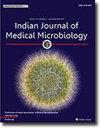超越传统疫苗:下一代疫苗在对抗抗生素耐药细菌方面的潜力
IF 1.4
4区 医学
Q4 IMMUNOLOGY
引用次数: 0
摘要
多药耐药(MDR)细菌在全球范围内的上升,主要是由于抗生素的过度使用和误用,已经升级为严重的抗菌素耐药性(AMR)危机。传统的疫苗平台,如灭活疫苗(IVs)和减毒活疫苗(lav),在控制细菌感染方面是有效的,但在对抗新出现的抗生素耐药菌株,特别是耐多药病原体方面面临局限性。传统疫苗的生产往往需要培养活的致病微生物,这既昂贵又耗时。此外,IVs和lav可能对新出现的耐多药菌株无效。迫切需要更有效的疫苗开发战略来对抗耐多药病原体。更有前途的方法可能是硅免疫信息学和反向疫苗学。本综述旨在提供下一代疫苗学方法的深入研究,重点介绍临床前和临床进展。它强调开发既安全又具有免疫原性的疫苗的重要性,以应对抗生素耐药细菌日益增长的威胁。这些生物信息学方法能够在多种耐药菌株中鉴定出保守的抗原靶点。多表位疫苗,如基于重组蛋白、DNA或mRNA的疫苗,可能提供更广泛的保护和更快的开发时间。下一代疫苗不仅有望增强免疫反应,而且有望提供一种比传统抗抗生素耐药性疫苗更安全、更可扩展的替代品。本文章由计算机程序翻译,如有差异,请以英文原文为准。
Advancing beyond conventional vaccines: The potential of next-generation vaccines in combatting antibiotic-resistant bacteria
Background
The global rise of multidrug-resistant (MDR) bacteria, largely driven by the overuse and misuse of antibiotics, has escalated into a serious antimicrobial resistance (AMR) crisis. Traditional vaccine platforms, such as inactivated vaccines (IVs) and live attenuated vaccines (LAVs), have been effective in controlling bacterial infections but face limitations in combating emerging antibiotic-resistant strains, particularly MDR pathogens. The production of traditional vaccines often requires the cultivation of live pathogenic microorganisms, which can be both costly and time-consuming. Moreover, IVs and LAVs may not be effective against emerging MDR strains. There is an urgent need for more efficient vaccine development strategies to combat MDR pathogens. The more promising approaches could be in silico immunoinformatics and reverse vaccinology.
Objectives
This review aims to provide an in-depth examination of the next-generation vaccinology approach, highlighting preclinical and clinical advancements. It emphasizes the importance of developing vaccines that are both safe and immunogenic to address the growing threat of antibiotic-resistant bacteria.
Content
These bioinformatics approaches enable the identification of conserved antigenic targets across multiple strains of resistant bacteria. Multi-epitope vaccines, such as those based on recombinant proteins, DNA, or mRNA, offer the potential for broader protection and faster development timelines. Next-generation vaccines hold promise not only for enhancing immune responses but also for providing a safer and more scalable alternative to traditional vaccines against AMR.
求助全文
通过发布文献求助,成功后即可免费获取论文全文。
去求助
来源期刊

Indian Journal of Medical Microbiology
IMMUNOLOGY-
CiteScore
2.20
自引率
0.00%
发文量
154
审稿时长
73 days
期刊介绍:
Manuscripts of high standard in the form of original research, multicentric studies, meta analysis, are accepted. Current reports can be submitted as brief communications. Case reports must include review of current literature, clinical details, outcome and follow up. Letters to the editor must be a comment on or pertain to a manuscript already published in the IJMM or in relation to preliminary communication of a larger study.
Review articles, Special Articles or Guest Editorials are accepted on invitation.
 求助内容:
求助内容: 应助结果提醒方式:
应助结果提醒方式:


